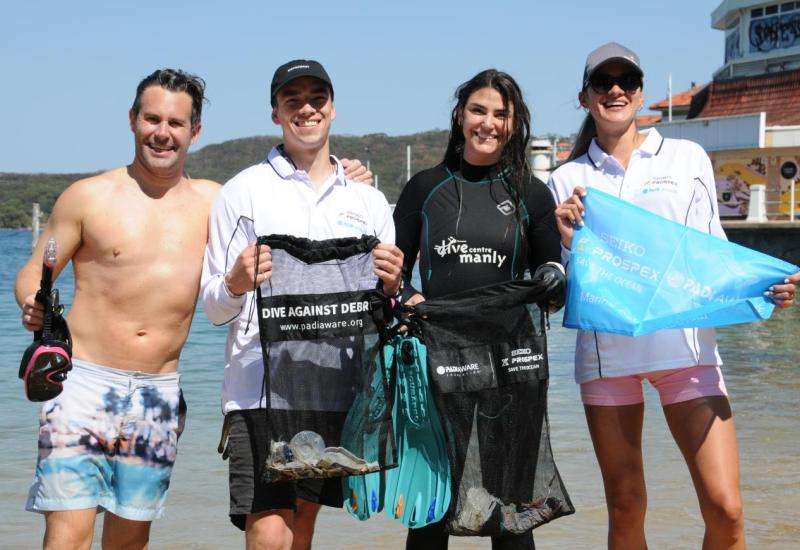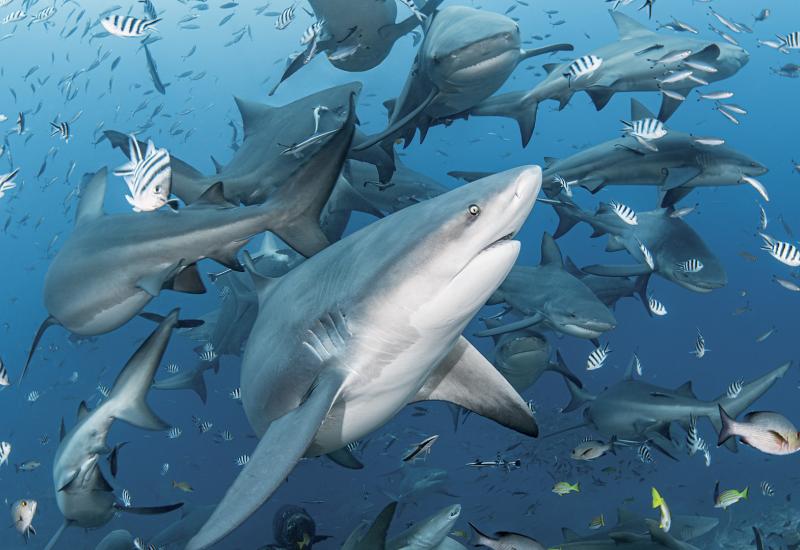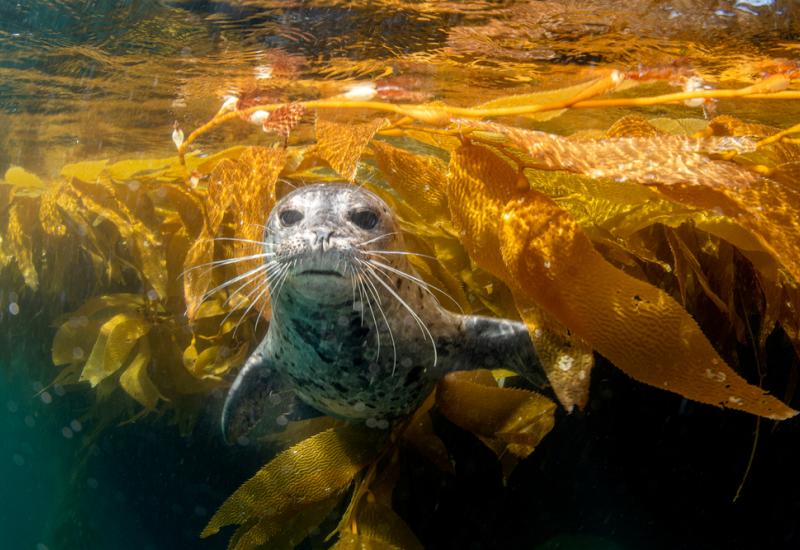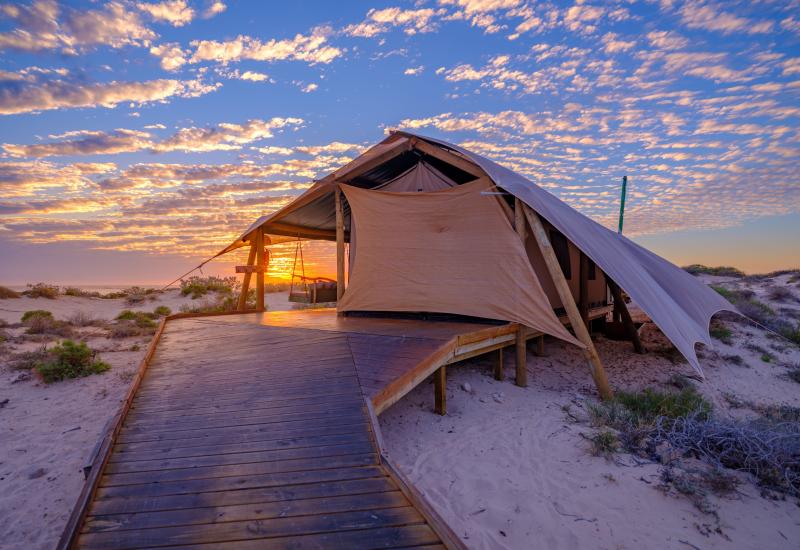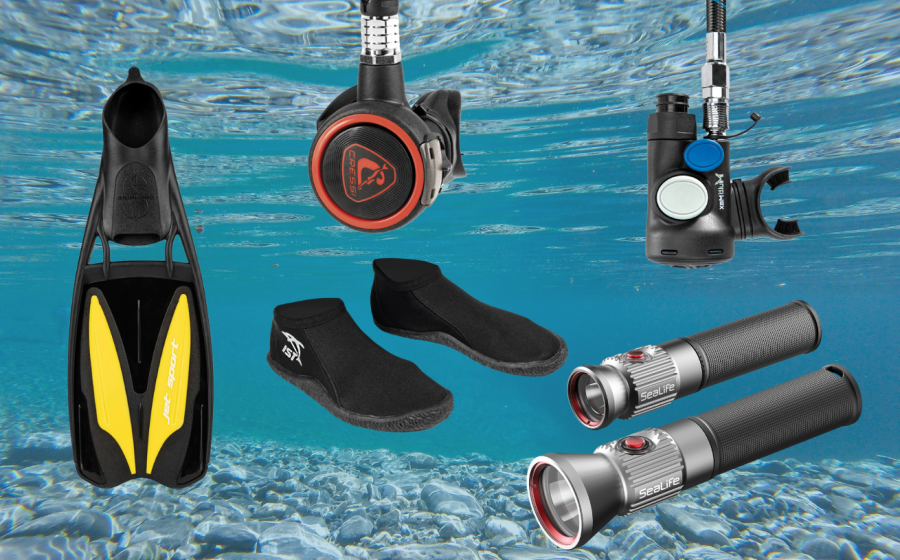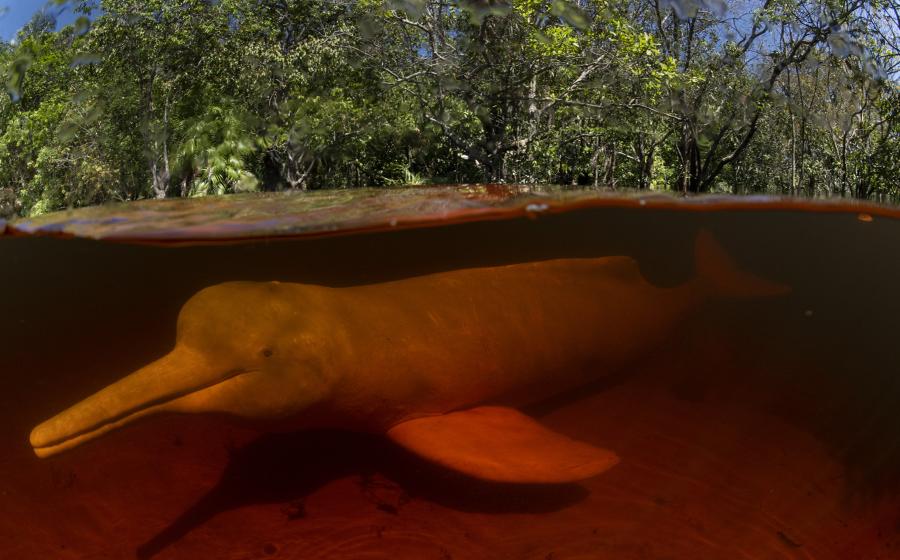Underwater Photo Gallery: A Scuba Diving Photographer's Guide to South Australia
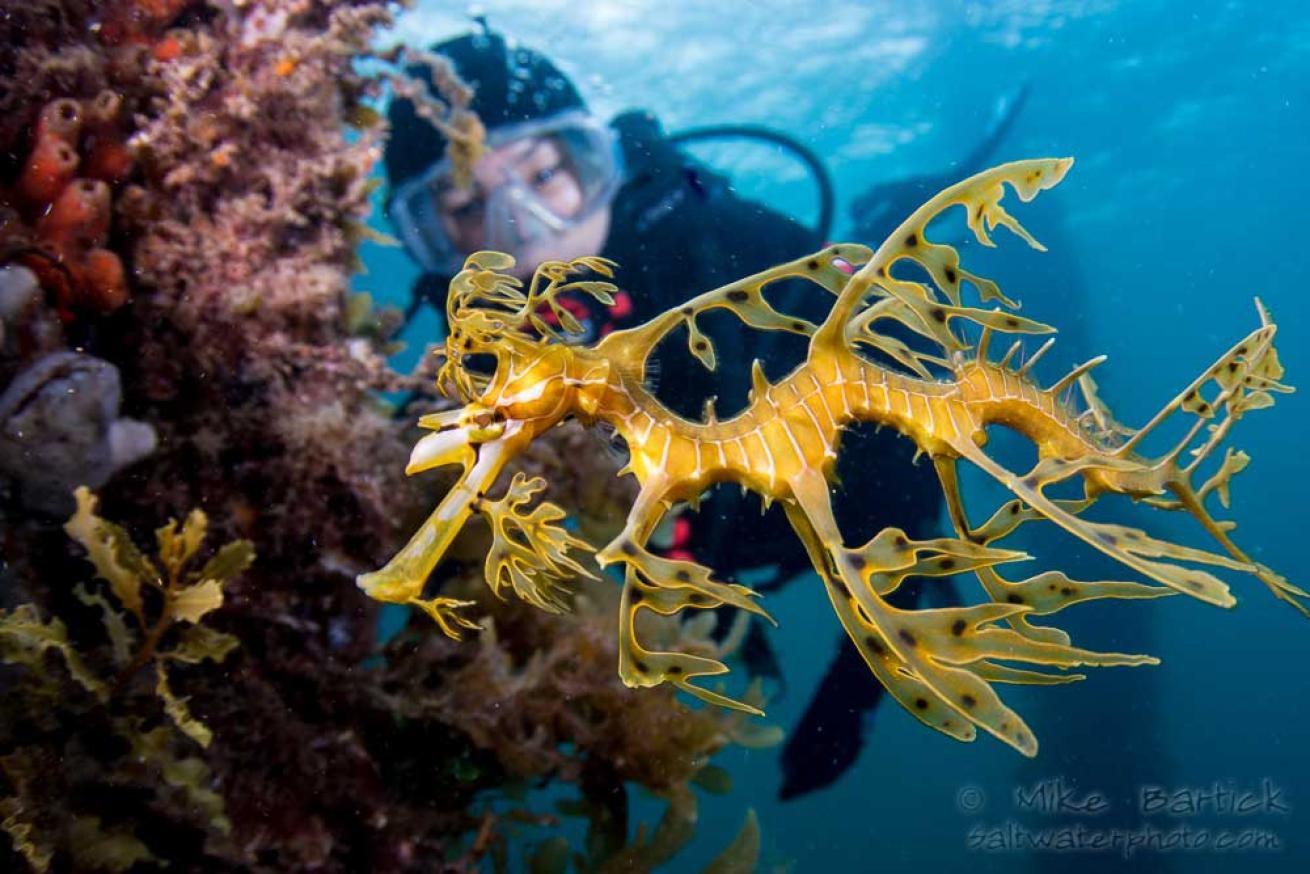
Mike BartickRapid Bay Jetty is one of SA's favorite places to see and photograph leafy seadragons (Phycodurus eques). A photograph can be a bit misleading, as the viewer may think the leafy is just hanging out and easy to find, but this couldn’t be further from the truth. These animals are masters of camouflage and blend perfectly into the algae that they so closely mimic.
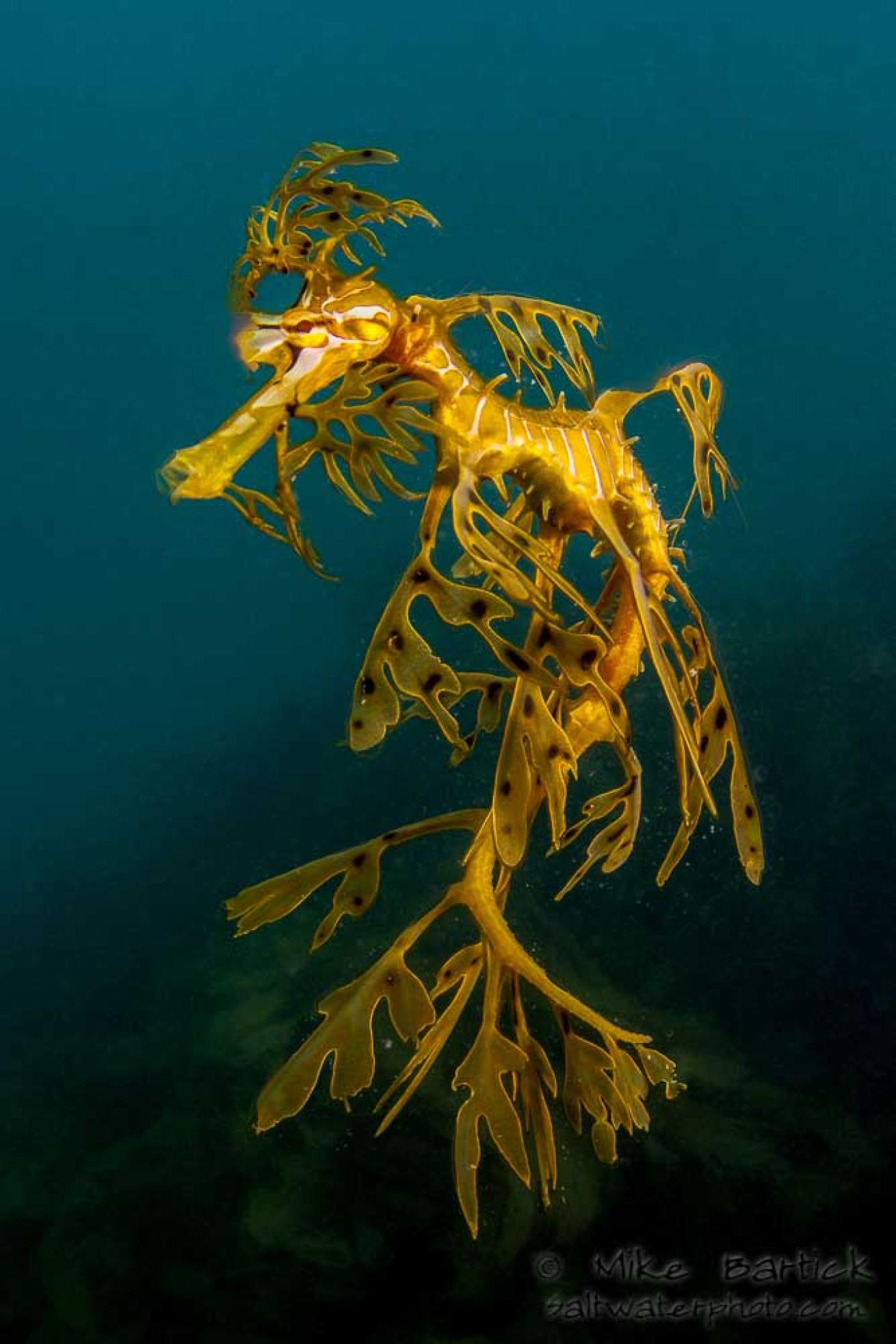
Mike BartickA leafy briefly poses for my lens before turning its back to me. Leafy seadragons do not like photographers in their face, but once in a while, luck will shine and patience will prevail. We found a small cluster of leafies at a place called Victoria Harbor, which also happens to be a favorite shark-fishing area for the locals. Water access isn’t as easy as some of the other dive sites — using a ladder in dive gear with a camera can be a bit tricky. Braving the sharks, the ladder and the surge were all well worth the effort as we saw a decent number of leafies in a short time.
Traveling the globe in search of unique marine creatures has led me to lots of off-the-beaten path places. Some of them are already popular amongst photographers and divers; others, like South Australia, are a bit more obscure. One could spend a lifetime diving here without scratching the surface. This region of the globe is all about endemic critters, and from your first few minutes underwater, you’ll see that there really is something special going on down under.
My first leafy seadragon (Phycodurus eques) sighting occurred at the Aquarium of the Pacific in Long Beach, California some 10 years ago. I was taking a behind the scenes tour of their husbandry program, and was being ushered through a cacophony of pipes, small tanks and bubbling aerators. Near the end of the tour we stopped in a small alcove, which held several tanks. Inside appeared to be pieces of floating kelp, but as the curator continued to talk, her voice quickly faded into the background as I realized I was looking at some kind of sea creature, a cross between a seahorse and a pipefish. I was hypnotized, watching the subtle, yet distinct, movements of this creature angling forward and backward. After asking the curator some questions about leafy seadragons, I knew I had to see one in person.
Adelaide is the jumping off point for SA diving, and everything is done by private hire. Although there aren’t any dive resorts, there are plenty of helpful and friendly dive shops. Rapid Bay Jetty is the destination of choice for many dragon hunters, as the water tends to be clean and sightings tend to be reliable. But on this trip we wanted to see more than just leafies, so we ventured around the cape to the Yorke Peninsula area of Edithburgh. The diving is shore-entry here as well, and most of the dives are under the main jetty or directly adjacent to the jetty in Edithburgh.
Edithburgh Jetty was recently named as one of Australia's best macro dives — and for good reason, as the sheer volume of marine life packed under the little pier is crazy. You’ll notice immediately the variety of healthy sponge life, nudibranchs and crabs. As the dive slowly progresses the substrate and sponge encrusted beams come to life with critters that will keep your shutter finger working for the duration of the dive.
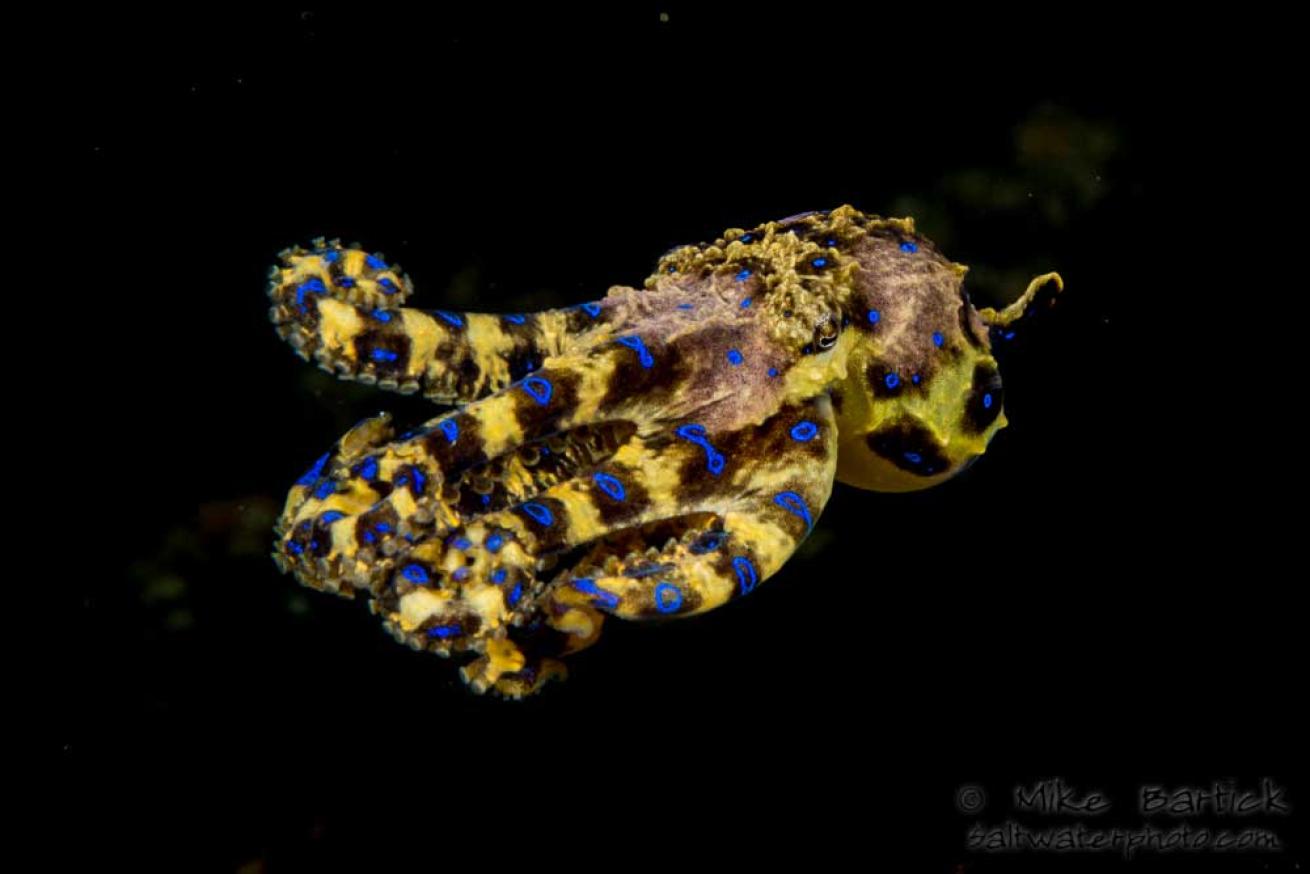
Mike BartickEdithburgh Jetty was named as one of the 10 hottest macro dives in SA and for good reason. On our first night dive alone we were treated to more than eight southern blue-ringed octopus (Hapalochaena fasciata).
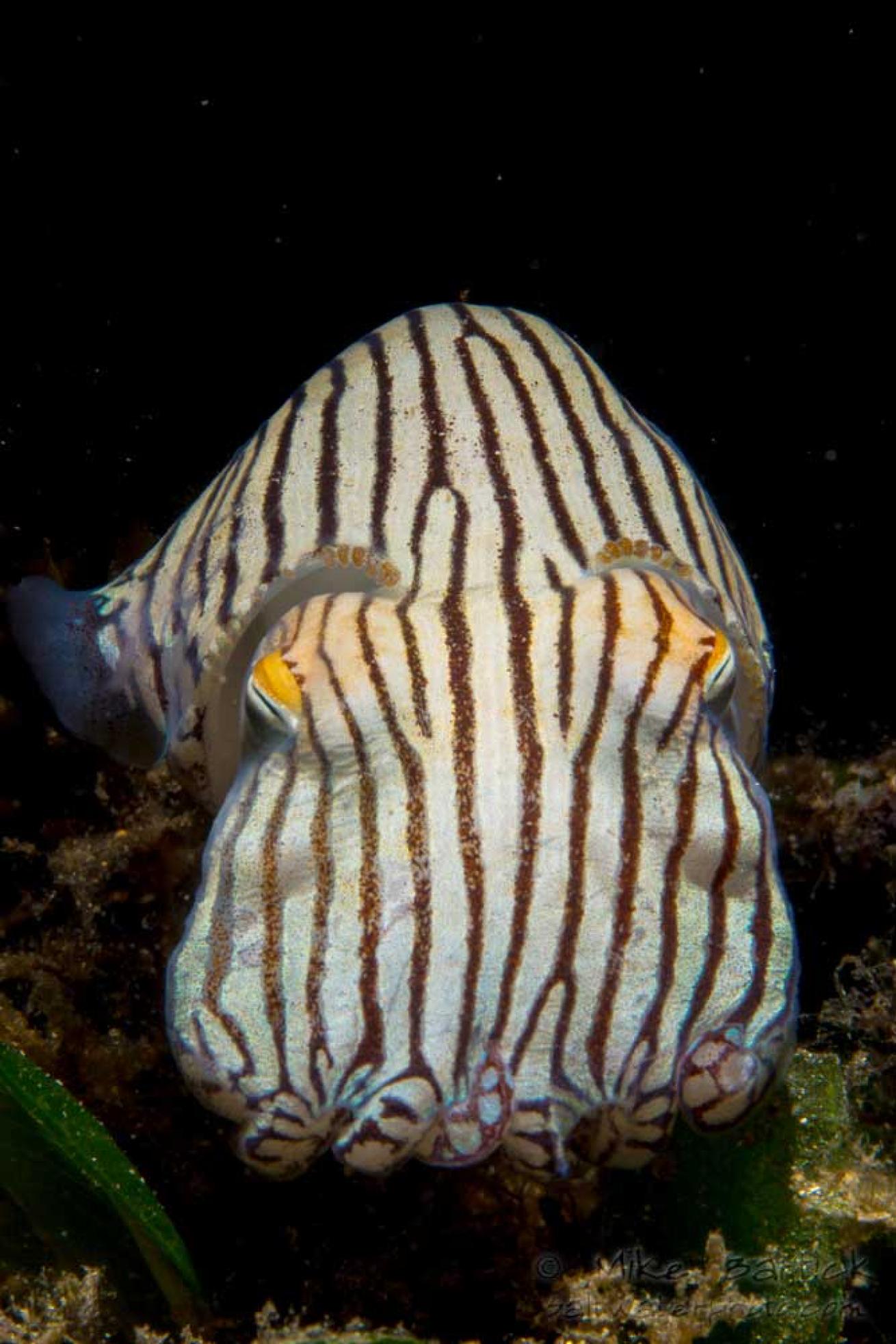
Mike BartickPajama squid (Sepioloidea lineolata) are a type of dumpling squid, which resemble a bobtailed squid usually associated with diving in the Indo-Pacific. They live under the sand and rarely swim in the water column. Not a difficult subject to photograph but certainly difficult to find and incredibly cute.
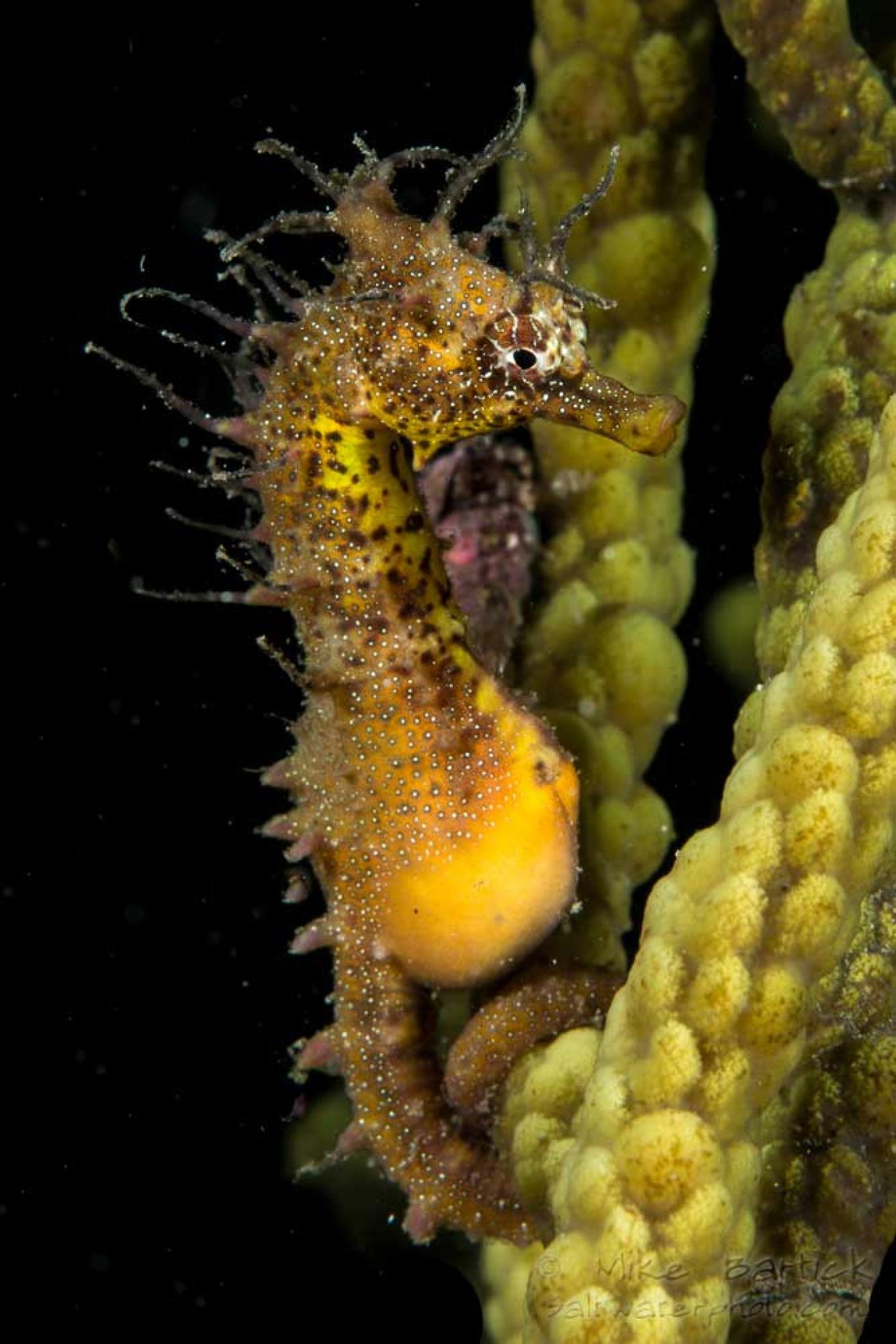
Mike BartickSwimming slowly through the algae beds on either side of Edithburgh Jetty will yield many interesting finds. The seaweed is a long, branching and bulbous type of algae that supports a wide variety of crabs, fish and seahorses. The pot-bellied seahorse (Hippocampus abdomanalis) is one of my favorites and plentiful on night dives.
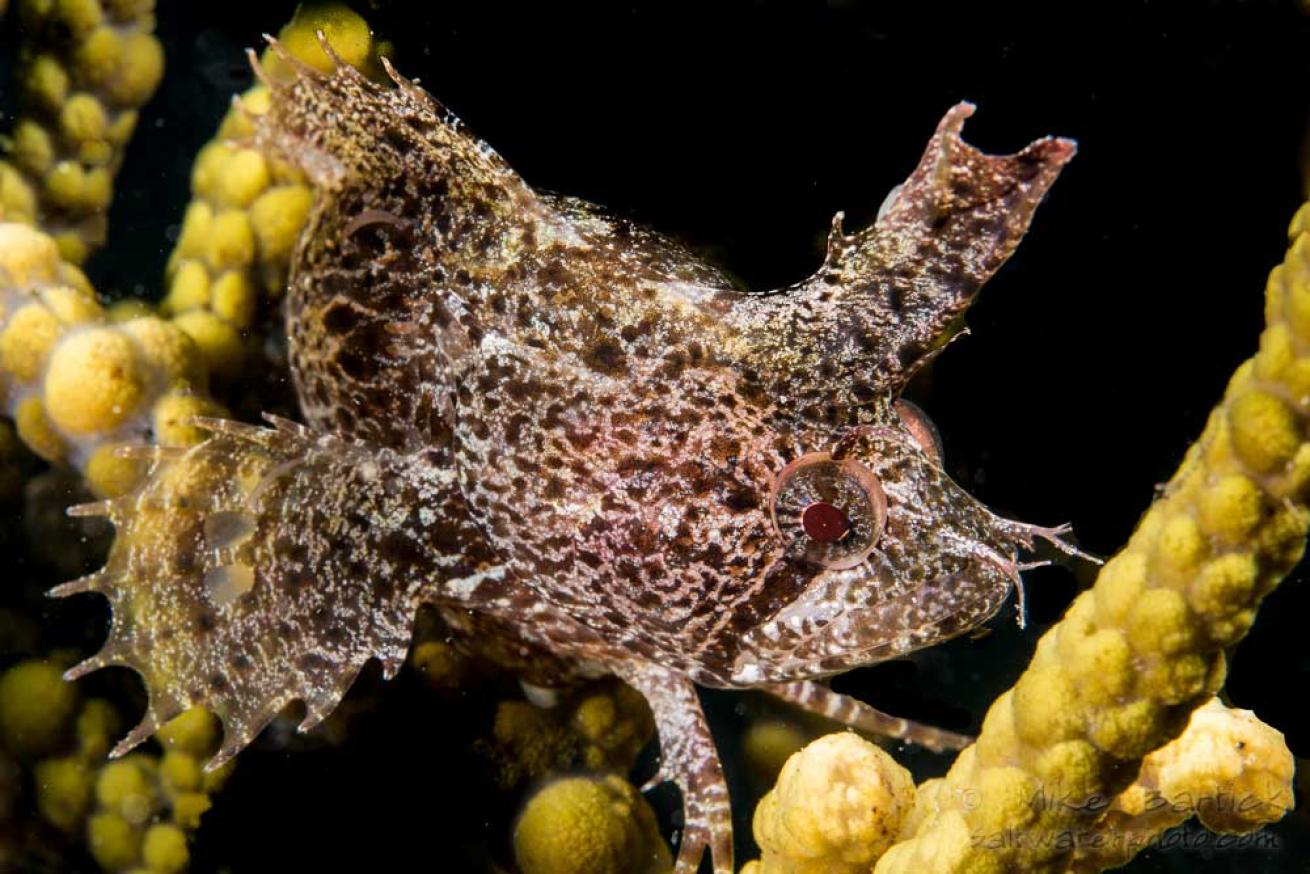
Mike BartickThe southern crested weedfish (Cristiceps australis) come in golden, reddish, green and mottled colors, and slightly resemble the kelp fish that commonly occur in Southern California. Entangled in the algae, I saw its tail first and followed it until I found the eyes. The crest on its head would raise and lower very quickly, creating a fun challenge to photograph.
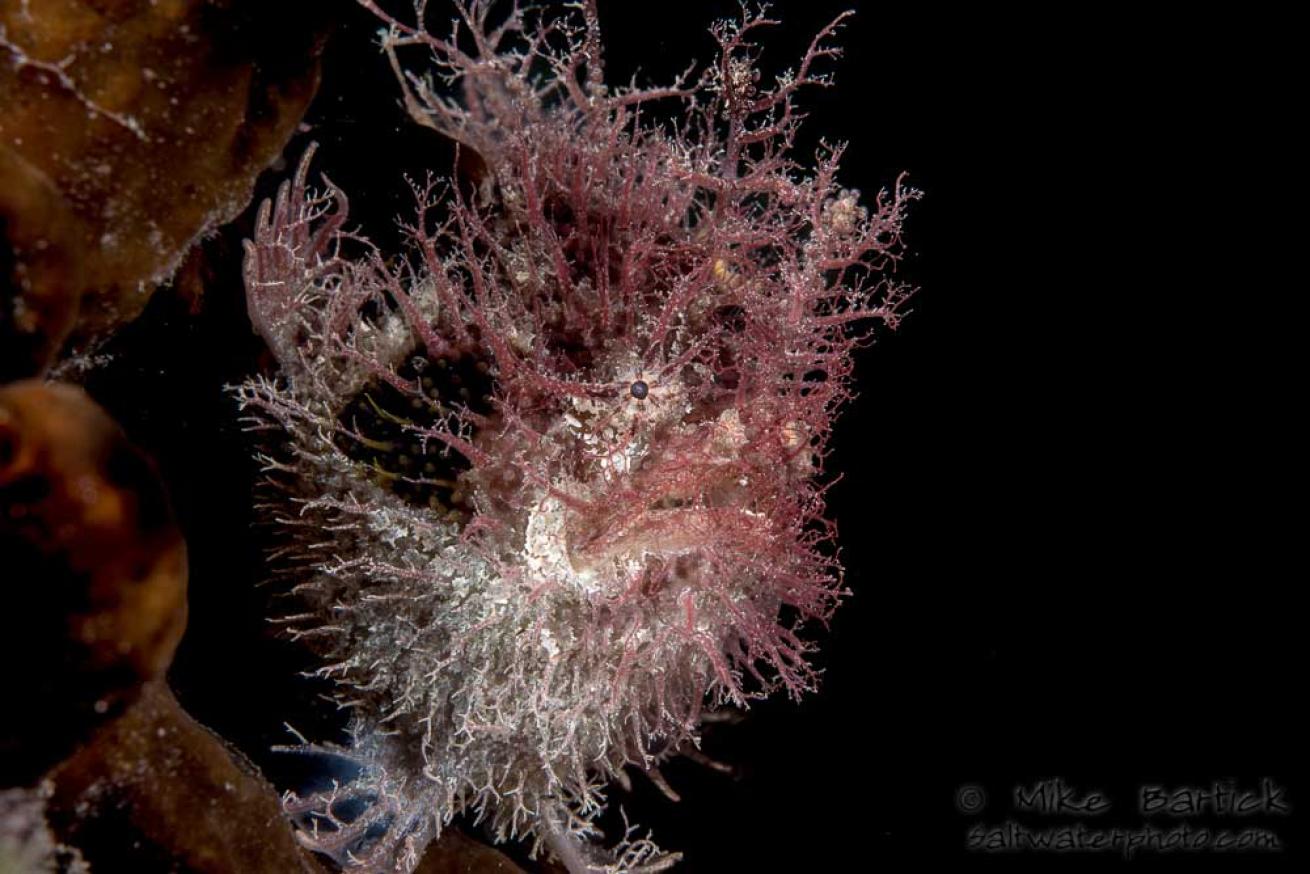
Mike BartickThe tasseled anglerfish (Rhycherus filamentosus) is high on my list for any visit to South Australia. This super-cool angler/frogfish is reminiscent of a frogfish and blowfish, crossed with a deep-sea angler.

Mike BartickLaunching from its hiding place this angler swam slowly, using my modeling light to hunt, gulping down shrimp and smaller fish as it swam.
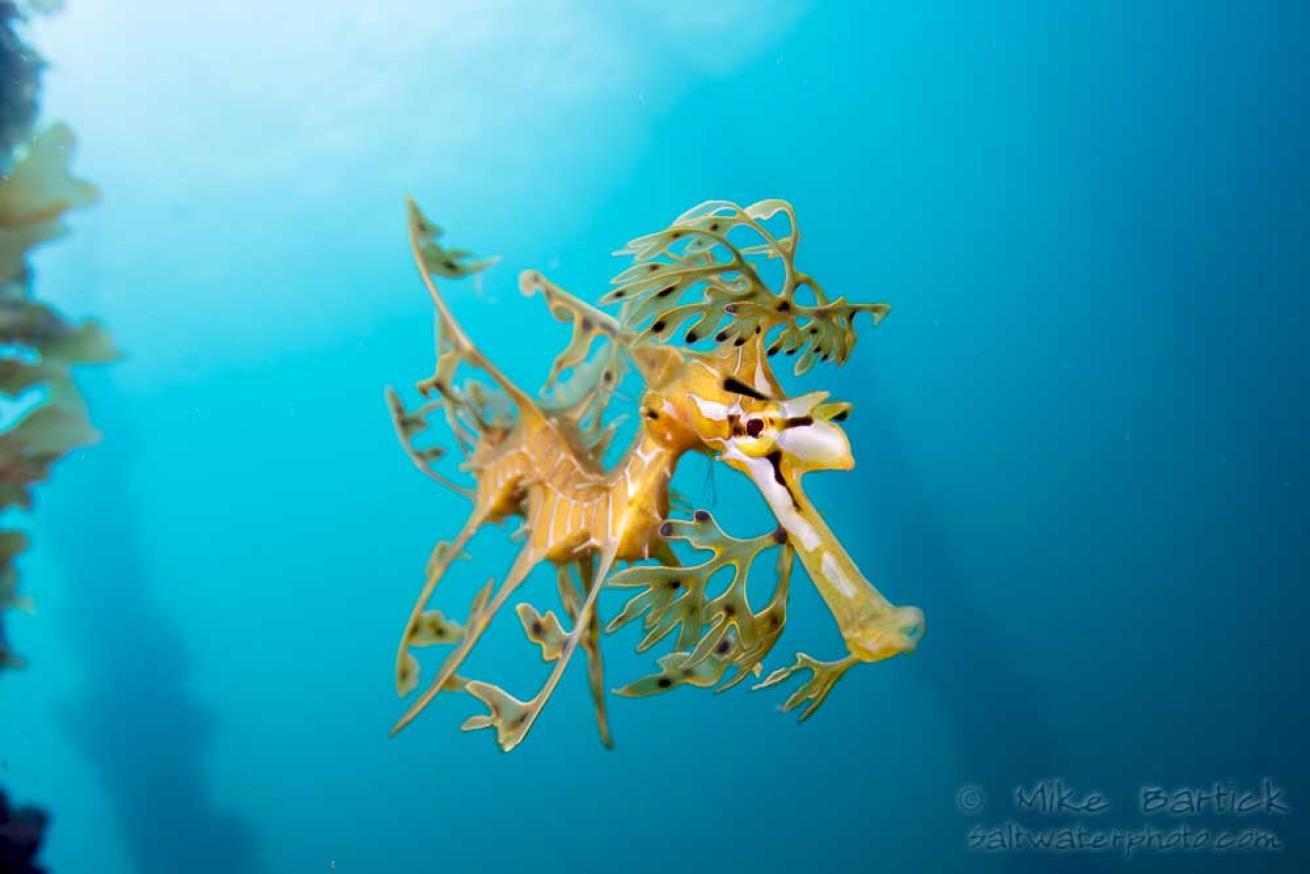
Mike BartickWhile the leafy seadragons are certainly enough reason for anyone to dive South Australia, there is definitely more to see once you’re there. Endemic critters everywhere make it easy to see that there really is something special going on down under.
CAMERA SPECS
Camera: Nikon D7100
Housing: Sea and Sea MDX D7100
Strobes: YS D1 strobes x 2
Arms: ULCS, Inon, BTS Clamps
Focus light: FIX
Lens Bag: 60mm macro, 40mm macro, 105mm macro, Tokina 10-17
Ports: Flat macro ports, Zen mini dome 100 mm

Sport DiverSign up for the Sport Diver eNewsletter
Did you enjoy the gallery? Have articles like this delivered in our weekly eNewsletter! Get exclusive trip reports, current dive news, travel deals and detailed gear reviews. Plus awesome contests, videos, photos and more — all delivered right to your inbox. It's a direct link to the best of the dive life. Sign up today.

